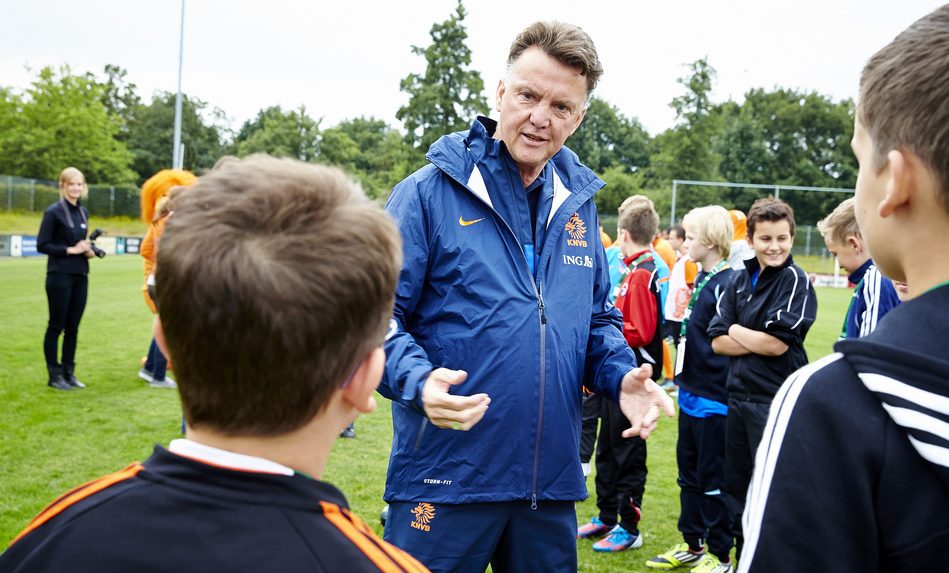Earlier this month, Louis van Gaal was set to retire from the world of football. He told Dutch newspaper the Telegraaf that “events in his family” had persuaded him not to continue as a manager, despite the chance to earn a lucrative salary overseas, including an off er to manage an Asian club—where he would have earned £11m every season. Yet, in the most van Gaal way possible, he has announced he is not entirely leaving the game; he’s just waiting for the right offer to come around the corner.
The former Barcelona and Bayern Munich manager is still, of course, hot property for prestigious clubs: he’s already turned down Valencia this month, and he can expect a few more offers in 2017. It’s likely, however, we have seen the best of van Gaal. His days of lifting major trophies,
formulating ground-breaking footballing strategy, and dominating European football are long gone. As has been asserted by football writers across the country, the final nail in his managerial coffin was his unsuccessful stint at Manchester United, which he described with the lament: “This is the world of football. Two weeks ago I was the king, now I’m the devil of Manchester”.
It is incredibly unfair that van Gaal will be remembered, particularly in English football, as the man who could not re-energise a depleted Manchester United squad, which is still suffering the consequences of Sir Alex Ferguson’s departure. Louis van Gaal is so much more than a bit-part figure in the history of Manchester United. He has achieved much more than most managers can dream of, which surely places him among the managerial greats. His record is superb. He took over as head coach of Ajax in 1991, winning three Eredivisie titles, the UEFA Cup, and the Champions League. Then, he won two Spanish league titles and one Copa del Rey with Barcelona. After joining Bayern Munich, he secured the Bundesliga title, reached the Champions
League final, and won the DFB-Pokal in his first season. He’s also managed the Netherlands twice—finishing third in the 2014 World Cup. With a less-than-impressive squad, he even secured the FA Cup during his time at Old Trafford too. How can all of these achievements be forgotten so easily? Some argue that van Gaal is overrated. After all, his first experience as Netherlands coach was not a memorable one: the country failed to qualify for the 2002 World Cup. As well as this, he is an outspoken and controversial figure.
Consider some of the ego-centric stories, for instance, such as when the angry van Gaal took off his trousers in an attempt to make a point about why he made substitutions in Bayern Munich. But this is why we need to remember van Gaal as such a colourful and enigmatic fi gure. He has proved he can win, whilst also getting back up after defeat. From the Netherlands to Spain, from European to world football, the Dutchman has shown what he is made of. Don’t judge van Gaal on his time in Manchester. He may never reach the highs of the past, but he has certainly developed European football, whilst making it entertaining at the same time.



